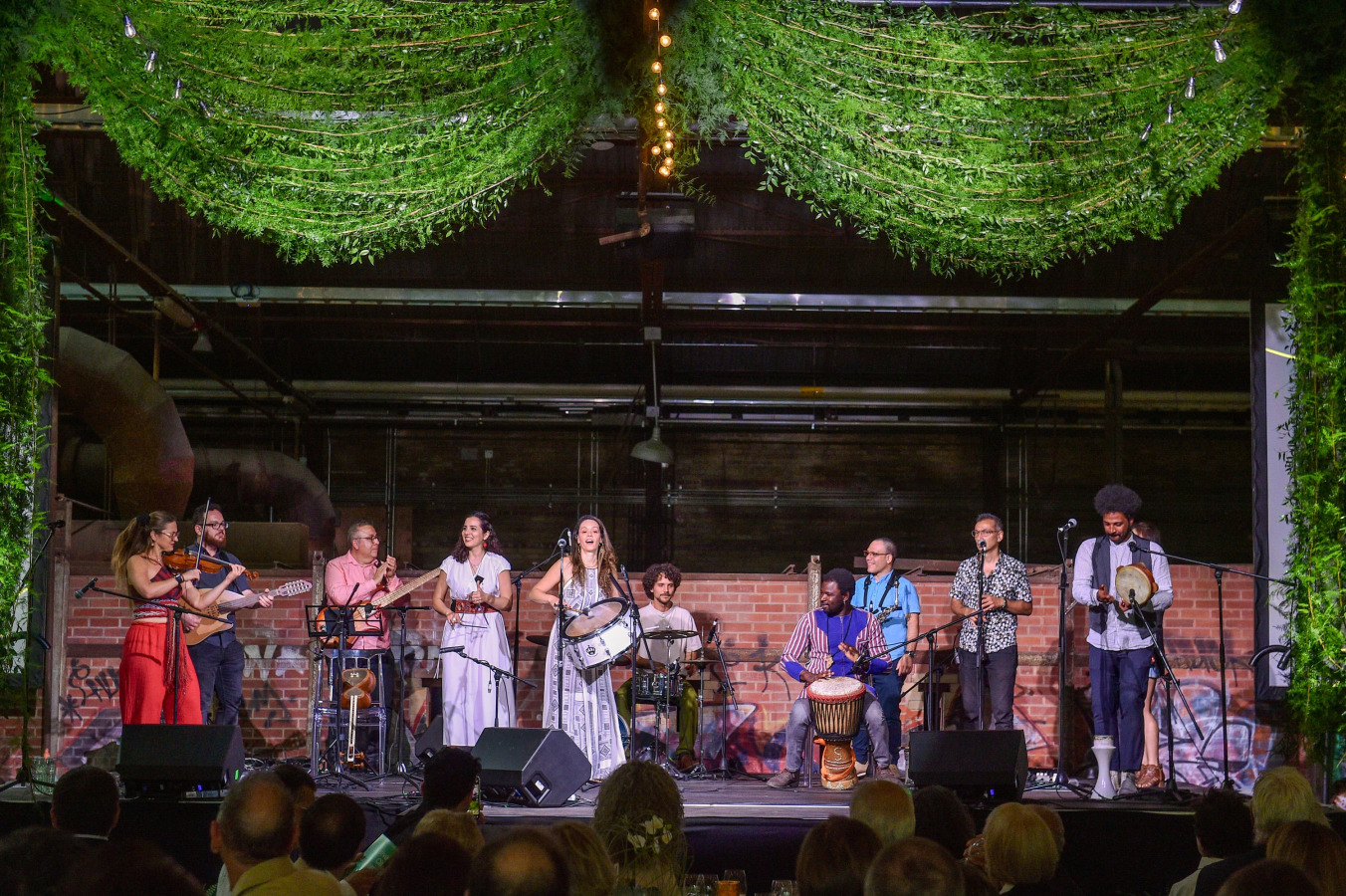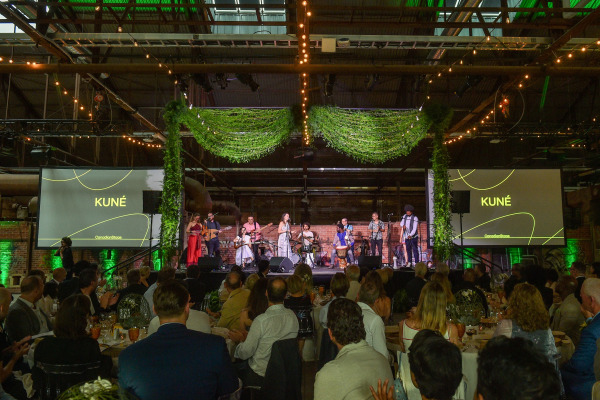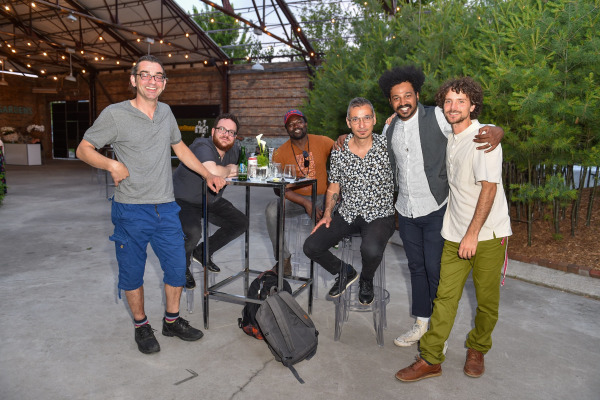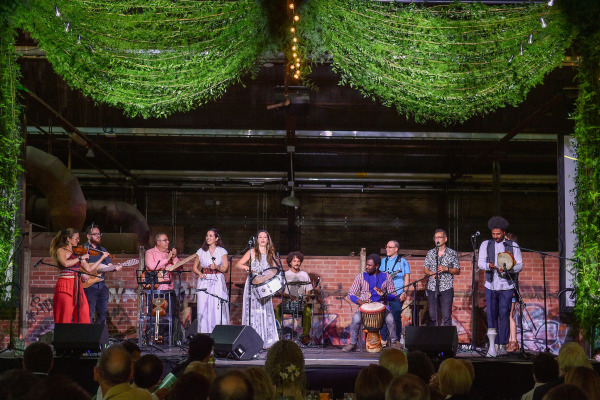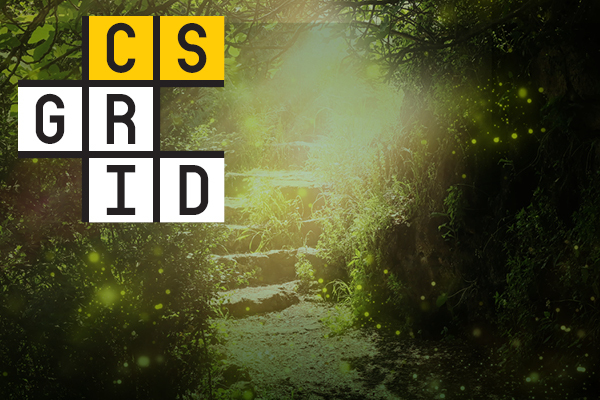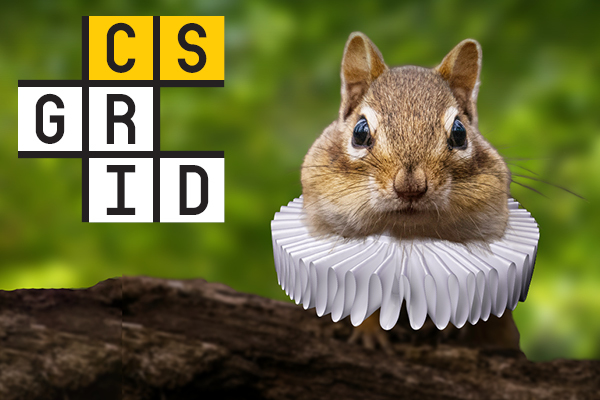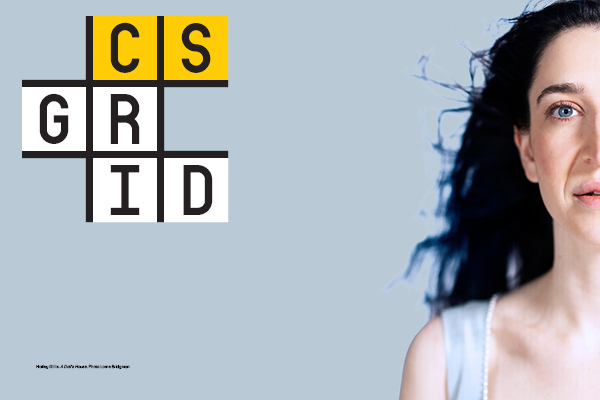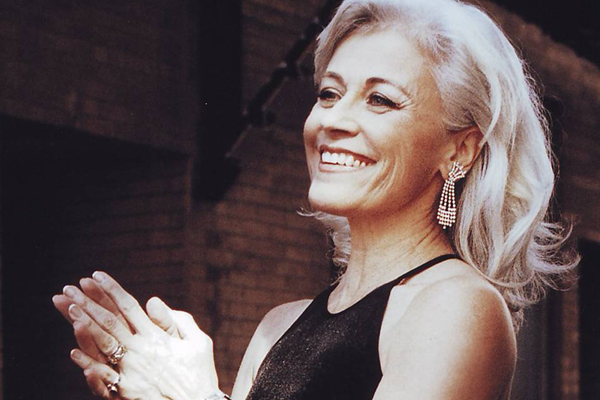Canadian Stage interviews KUNÉ
We’re delighted to welcome KUNÉ, Canada’s Global Orchestra, to the High Park stage as part of the Dream in High Park Summer Music Festival in partnership with Small World Music.
See KUNÉ Live - July 2
KUNÉ (which means together in Esperanto) originally was planned as a short-term project created by the Royal Conservatory of Music (Toronto) in 2016. Soon after its debut, the band was beloved by various presenters and soon toured across the country. In 2021, KUNÉ became an independent collective. After five years of working together and getting to know one another, KUNÉ’s sound and essence have only strengthened and become grounded.
In this edition of CS Grid, we interviewed KUNÉ to learn more about their relationship, how they, as a collective, weave together various rich and diverse musical cultures, and what it means to create music in the city.
Music is a celebration of life and an expression of joy and community.
What can we look forward to when you join us in High Park?
You will be invited to hear what it sounds like when musicians from all over the world who has called Toronto home, bring their full musical selves into dialogue and collaboration. You will hear a Chinese Dizi flute playing together with a West African Ngoni, a Persian Tar in conversation with an Oud from the Middle East. You will hear lyrics that mix Portuguese with Arabic and Turkish, Bwamu and Greek, and more.
You will hear familiar and unfamiliar sounds mixing together in musical dialogue.
How has music inspired you?
Music is our craft and our medium of expression. It motivates us to keep learning from each other and being creative. It is the medium we use to connect to each other across cultures, languages and histories.
Why is it important for KUNÉ to showcase a wide diversity of instruments?
Music is a celebration of life and an expression of joy and community. Even if these instruments have come from different traditions and different histories, they all have the capacity to stretch their limits and communicate with each other in creative ways. Toronto is home to people from all over the world who hold a immense amount of knowledge and wisdom in the form of songs, stories, melodies, and memories. It is important to us to make connections and build bridges that can bring all of these different strands together so that we can begin to imagine a shared future.
What are some of the special qualities about KUNÉ?
KUNÉ brings together people from 11 different countries, each of whom is a specialist in some local tradition, sometimes more than one. But every musician in KUNÉ is also adept and familiar with several forms of global pop, jazz, classical, etc. What makes KUNÉ special is that our collaborations require each person to bring their full musical selves to the table, not just what they know of their “tradition” but also their personal taste, their experience with other forms of music and their imagination to create new sounds and possibilities.
Can you share your thoughts on being part of the line-up for Canadian Stage’s inaugural Dream in High Park Summer Music Festival?
We are very proud to be part of this line-up because, even though we were all born in different places, we have made our home in Toronto and this is the place that makes our music possible. We are very excited to be part of a line-up that brings together so many amazing Canadian artists in a such a beautiful place like High Park.
How does it feel to be performing outdoors at High Park Amphitheatre surrounded by nature?
We are very excited to have the opportunity to share our music with not only humans but with all those non-human beings who live in High Park: the trees, the birds, insects and animals. As part of our program, we will be performing our “elements suite” which consists of four pieces named after each of the four elements: Water, Earth, Fire and Wind. This will be the first time we perform these pieces in close contact with the elements and for a non-human audience as well. We are curious to see how everyone will react! And how the sounds of humans and non-humans will interact with our compositions!
Join them on their musicial journey at the Dream in High Park Summer Music Festival!
Performers & Instrumentation
Ahmed Moneka, darbuka, vocals
Aline Morales, vocals, congas, pandeiro, alfaia & zabumba
Demetri Petsalakis, lyra, guitar & oud
Alyssa Delbaere-Sawchuk, violin & viola
Dora Wang, dizi, xiao & alto flute
Lasso, vocals, djembe, n’goni, peul flute & tama
Luis Deniz, alto saxophone
Matias Recharte, drum, cajón & percussion
Paco Luviano, double bass & electric bass
Padideh Ahrarnejad, tar
Selcuk Suna, vocals, clarinet & tenor saxophone
Learn More about KUNÉ!

